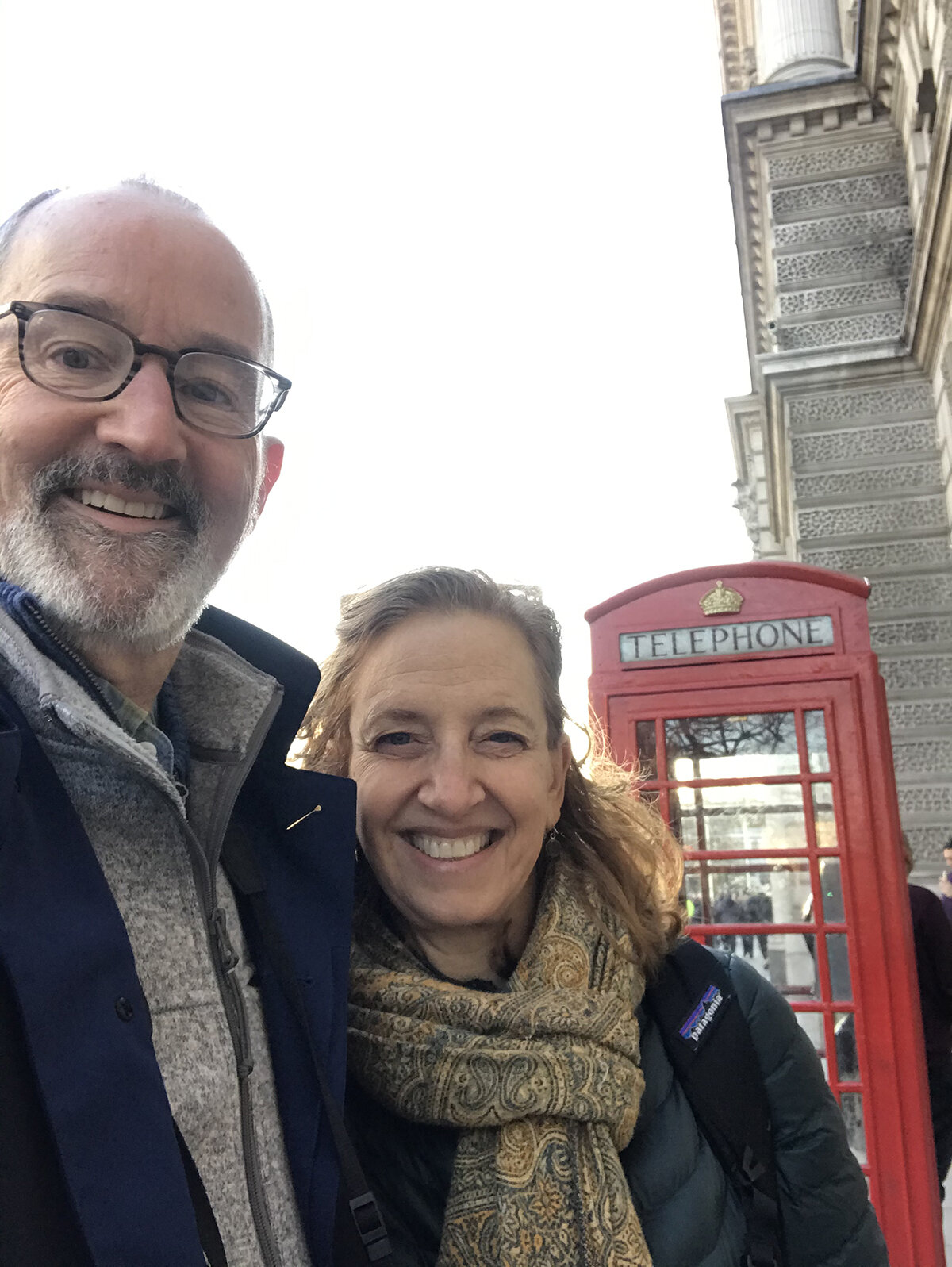Evan and Laura in London. Photo Credit: Center for Compassionate Leadership.
We were on a combined business and touring trip to London, taking advantage of a stretch of sunny weather. We wandered toward Westminster Square after exploring Hyde Park and checking out Buckingham Palace. After taking a quick selfie in front of one of the ubiquitous red telephone boxes, we headed toward Westminster Bridge for sunset pictures of the Houses of Parliament. At that point my phone started buzzing, “Where are you?”, “Is everything ok?”, etc. It didn’t take long to see notices on the phone that there had been a terroristic stabbing incident on London Bridge over the Thames, just downstream from where we were playing tourist.
It seems we can’t go a day or travel someplace without being confronted with outbreaks of violence and crimes against humanity. Even as I am sitting here writing this, news notices are buzzing about a shooting at a US Naval Base that has left four people dead. Each incident carries its own horror, and we are repeatedly saddened as each violent act unfolds.
London Mayor Khan’s press conference. Photo Credit: Will Harrel.
If we stay focused on the news reports, it would be easy to become discouraged. Yet, we have a choice as to what impact we would like to create in the world as a result of our actions. Research by Jonathan Haidt and others has shown that when we see others performing a helpful or kind act, we experience a strongly positive emotion called “elevation,” (a term originally described by Thomas Jefferson) which in turn motivates us to follow up with more generous acts directed towards others.
In other words, compassion is contagious, and if we would like to find a path to neutralizing the violence and anger in the world, we can do so by acting compassionately towards others. On December 21, 2012, in a well-documented occurrence, 228 consecutive customers at a Tim Horton’s in Winnipeg, Canada, “paid it forward” by picking up the tab for the car in line behind them. The initial generous customer, who paid for their own order and for the car behind them started a chain of compassion that lasted for over three hours, one customer at a time.
It is worth noting that the Tim Horton’s outbreak of compassion occurred on the winter’s solstice, the darkest day of the year. Those Manitobans may have only had eight hours of sunlight that day, but they were able to send light out into the world through their good deeds. And so can we! Mahatma Gandhi famously said, “Be the change you want to see in the world.”
The world is hungering for change, and it is coming. We received additional evidence of this at our final stop in London, where we shared the principles of compassionate leadership with twenty leaders of a multinational corporation where compassion is taking root and flourishing. Our conversations made it clear that they know the old structures and rules are no longer effective, and their new mission is to accelerate their impact for the wellbeing of the planet and all its inhabitants.
So, take a stand. Play your part, however you can, through acts of compassion. Make those acts an open-hearted offering with no goal in mind other than to send kindness into the world. Based on what we know about the impact of compassionate acts on others, the world will pick it up from there.
London Sunset Photo Credit: Center for Compassionate Leadership.



